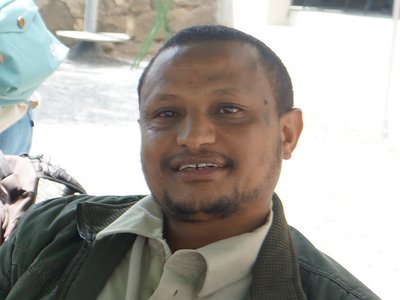

In many African countries in general and in the highlands of Ethiopia in particular, agricultural land is highly fragmented. Small and scattered parcels impede a necessary increase in agricultural efficiency. So, Ethiopia has attempted to improve the economic and the social outcomes of farming in the country. The government, following a recognition that small-scale farmers are perennially underperforming in regard to farm output, invested in land consolidation as a mechanism to improve the fate of the country’s agricultural sector. Land consolidation is a proper tool to solve inefficiencies in agricultural production, as it enables consolidating plots based on the consent of landholders.
This paper investigates the determinants influencing the willingness of landholder farmers to participate in voluntary land consolidation processes. The study was conducted in Gozamin District, Amhara Region, Ethiopia. Survey data were collected from 343 randomly selected landholder farmers. In addition, structured interviews and focus group discussions with farmers were held. The collected data were analyzed quantitatively and qualitatively. The study provides evidence that policymakers should consider these socio-economic, legal, cultural, infrastructural, and land-related factors when designing and implementing voluntary land consolidation policies and programs.
Abebaw Andarge Gedefaw is currently a PhD student at the University of Natural Resources and Life Sciences, Vienna (BOKU). His research title is “Semi-automatic extraction of information from multi-scale and multi-temporal remote sensing data to support rural land administration in Ethiopia” and his research is connected to the EduLAND project, a cooperation between the BOKU, Debre Markos University and Bahir Dar University.
In addition, the main objective will be to test the applicability of semi-automatic feature extraction algorithms to support general cadastral boundary mapping from aerial photographs and high resolution multi-scale and multi-temporal remote sensing data in peri-urban and rural areas of the Amhara National Regional State, Ethiopia. Before coming to Austria he had been teaching at the department of Geography, Surveying and Land Administration at Debre Markos University since October 2013. He served as Head of the Department of Geography for one year. Since October 2012 he was a lecturer and researcher at the Department of Population Studies at Gondar University. Furthermore, from 2009 to 2012 he had been working as a higher statistician at the Central Statistical Agency in Addis Ababa.
He got a bachelor’s degree in Geography from Bahir Dar University in 2003, a master’s degree in Population Studies from Addis Ababa University in 2008 and an MA degree in GIS, Remote Sensing and Digital Cartography from Addis Ababa University in 2012.
